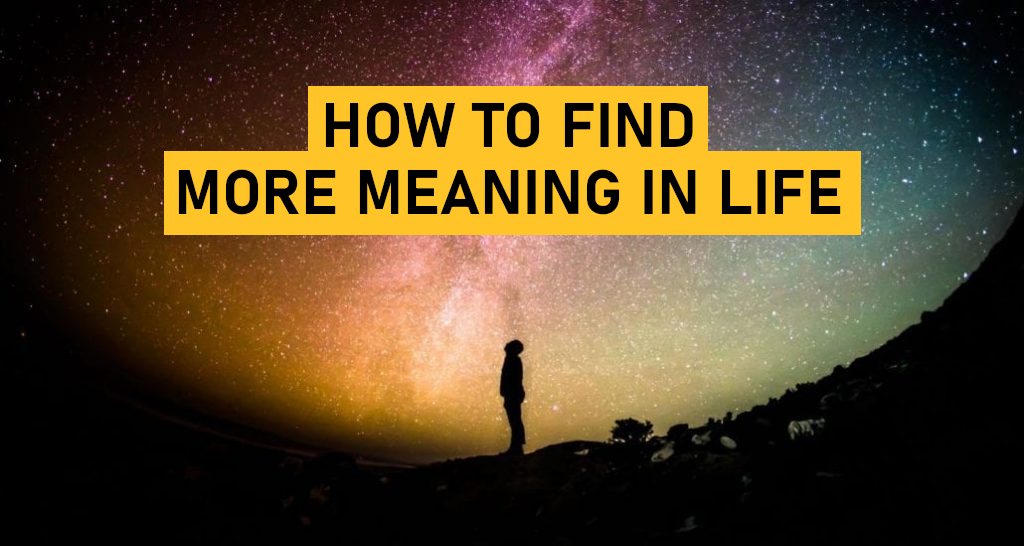There’s a lot of bad advice out there on the Internet.
Some of it is relatively harmless, but some of it can be very, very dangerous indeed. It’s also one thing to simply scribble out some silly thoughts and post them online and quite another to meticulously craft and intentionally publish bad advice to people that trust you which leads to your benefit.
The most egregious offender in this regard is the unfortunately flourishing industry of life-coaches, get-better gurus and feel-good fundis which could give COVID a good run in terms of ability to proliferate and sap the life force out of people.
Most self-help specialists are in the industry to help themselves to your money first, and the vast majority of their prettily packaged platitudes are neither useful nor actionable and can be downright dangerous. Deepak Chopra is worth $150 million, and he tweets financial “advice” about the “Yoga of Money”.

It’ll get you in touch with your chakras but it costs another 100 bucks.”
The ugly truth is that with a projected valuation of $13 billion dollars (in the US alone) by 2022, the self-help industry is just getting started and the snake-oil salesmen are here to stay. The best way to counter misinformation is with the truth – here are 3 science-backed insights (with linked sources and studies) which you can apply into finding more meaning in your life.
1. Peek into your Personality
Isn’t it ironic how one of the most universal human traits is self-obsession? One thing we almost all have in common is a deep focus on the self – within each of us lies a well of wants, needs and wishes, an intense desire to discover who we are and maybe share some parts with others.
More than anything else, we want to know more about ourselves, and where we are going – with no shortage of proffered answers to pick from. From tarot cards and throwing bones to fortune cookies, fatalism, crystal balls combined with palm lines and Prophet Sithole pamphlets: you are free to pick your predestination poison.

With so much variety, it’s easy to get overwhelmed in terms of determining what’s true – but thankfully, we have research-backed insights which are a bit better to rely on than your monthly Elle horoscope.
The Big 5 Personality Model is by far and away the most scientifically valid form of any personality assessment – the model itself resulted from the contributions of many independent researchers, and initial research began in the 1930s and was refined over decades towards a comprehensive categorization of the components of personality which have been shown to be rigorously tested and proven.

That seems worrying – I should probably make a Tik-Tok.
Why this is important:
Once you determine where you sit on the Big 5 model, you can this information with potentially powerful outcomes.
The Big 5 has been shown to produce results that can be used to predict at least some part of a person’s likely academic achievement, dating preferences and even future parenting behaviour.
Knowing our personalities a little better allows us the space to try and align who we are with what we want to do (Career and Goals) and who we want to be (Values). It also allows us to critically evaluate who we currently are, and decide where we want to better ourselves or even outright transform. We should never underestimate our tremendous capacity for change – the science shows that you can indeed mould your personality to who you want to be – it just takes work and time.

2. Understand the Stories We Tell Ourselves
When was the last time someone sultrily asked you “What’s your story?” at a bar?
Depending on the lockdown regulations where you live and your specific level of attractiveness , the answer could vary from “a couple of months ago” to “never”, but the point is that if asked, you would , undoubtedly, have something to tell. And you would do it in the form of a story, with a clear beginning, sections with causes and effects, incorporating climaxes and resulting in a resolution, because storytelling is part of who we are.

Storytelling is so central to how humans view the world and each other that we see them even when they’re not there. That’s what a painting or a photograph is, right? It’s just a moment captured in time, but with one glance the viewer conjures up a past, mood, feelings, characters: an entire Iliad composed from just a few brush strokes.
The most interesting and powerful story to each of us, of course, is the story of our own lives.
Enter Narrative Psychology – the notion that simply living through moments and experiencing events every day is only half the story – rather, it’s the way that each of us integrates those facts and events internally- picking them apart at the seams, adding fluff and searing off the unsightly bits before finally weaving them back together with the rest of us to make meaning.
The crazy thing is none of us have any control over how our stories start, and we have no choice over how we are taught to see the world. Each of us learns how the world works from those closest to us in childhood – how to treat others, what it means to be fair, when lying is acceptable – these and so many more example are taken as gospel . By the time you start writing the later chapters of your life, most of the preface has the signatures of a thousand storytellers scribbled all over -you may feel that life has gotten away from you, and that you are simply a product of others and your environment.

Why This Is Important:
The key is agency – the sense that we are in control of our own stories. Narrative psychology tells us that introducing a sense of agency into your life can actually increase your mental health. Viewing your life as an on-going narrative and yourself as the author of that story allows you to determine how you react and respond to events going forward.
We can choose which of the stories we want to keep from our childhood, as well as if we want to frame future events in a more positive or different life. The important thing to remember is that you hold the pen.

3. Happiness is Adaptive
It will come as no surprise to you that a cornerstone of effective marketing is to “sell emotions, not logic” – and no emotion has been shovelled down our collective consumer consciousness as hard as happiness.
It’s a bit telling when the two most ubiquitous brands in the history of marketing have incorporated the term so assiduously that all you have to do is buy some sugar water to “open happiness” which you can pair off perfectly with your Happy Meal.
Add to this the never-ceasing cascade of advertising content reminding you of how happy you should be – or even worse, could be, if only you bought this car, in this colour, with these additional features (VAT not included). The pursuit of happiness is both exhausting and never-ending – which has a lot more to do with how we are wired as humans rather than your inability to just simply be content.
This is Hedonic Adaptation – the human tendency to quickly return to a relatively stable level of happiness despite major recent positive or negative events or life changes – and it should revolutionize the way you view happiness.
According to the theory of Hedonic Adaptation – which has been demonstrated repeatedly in different scientific studies – it doesn’t matter whether you achieve everything you ever wanted, or suffer your absolute worst fear. As your dreams or nightmares come true and you live them, your expectations and desires rise or fall in tandem. This always results in no permanent gain in happiness over the long-term.
Hedonic adaptation also explains why people are so very wrong when they ascribe being happy with an achievement or milestone in their lives.
A lot of people say something along the lines of “when I get that job I always wanted, I’ll be happy” or “once I move overseas/get married/find love, I’ll be happy”. But we know that once you get all that and more, the happiness will be but fleeting, after which you will return to a base level of general okayness – probably even a bit dismayed that your achievement didn’t feel the way you hyped it up to be internally and ready for the next happiness hit.
You can’t say the design isn’t effective at motivating you ever onwards – it’s evolutionary in nature, but that doesn’t mean it’s going to make you feel good.
Why This Is Important:
It’s evident that no matter how hard the message is laser-beamed directly into your eyeballs, searching for happiness is not the answer.
Rather, you can actually help happiness find you – studies have demonstrated that practicing gratitude has demonstrated a significant effect in bettering mental health – even when that gratitude practice is brief. In fact, there is evidence from fMRI scans to suggest that practicing gratitude potentially has long-term effects on your actual brain.
Couple this with standard science-backed daily health tips that assist with emotional regulation such as eating well, getting enough sleep and exercising regularly, and it’s easy to see why being thankful and taking care of ourselves is more effective for contentment, albeit less exhilarating, than chasing the next happiness high.
So there you have it – 3 science-backed insights into finding more meaning that you can apply to your own life. If you have any insights or advice of your own you’d like to share, feel free to leave them in the comments below!
Enjoying the site? Don’t miss our FREE CPD Newsletter – sign up below and stay updated weekly with free CPD content delivered directly to your inbox!
Sign up here:
Fair Use Disclaimer
Copyright Disclaimer under section 107 of the Copyright Act 1976, allowance is made for “fair use” for purposes such as criticism, comment, news reporting, teaching, scholarship, education and research.
Fair use is a use permitted by copyright statute that might otherwise be infringing.
Fair Use Definition
Fair use is a doctrine in United States copyright law that allows limited use of copyrighted material without requiring permission from the rights holders, such as commentary, criticism, news reporting, research, teaching or scholarship. It provides for the legal, non-licensed citation or incorporation of copyrighted material in another author’s work under a four-factor balancing test.
myCAhub™ does not generate any income from the posting of blogs on the site. Any copyrighted material in this blog is used for the purpose of commentary, parody and criticism. All rights and credit go directly to the original creators of such copyrighted material. No copyright infringement is intended.





